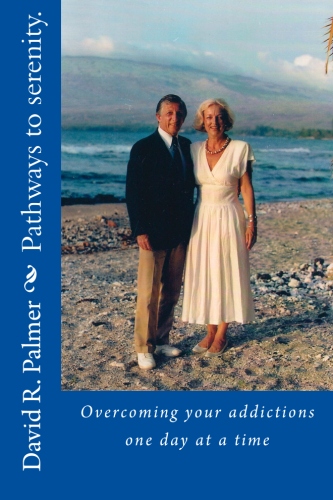Top executives share their stories of addiction and recovery
By Gary Stromberg and Jane Merrill
McGraw Hill, $15.95
During the sixties and seventies Gary Stromberg, a brash Los Angeles press agent and movie producer, toured the world with the likes of the Rolling Stones, Pink Floyd, the Doors, Three Dog Night and others and shared their appetite for women and dope — mostly heroin, cocaine, pot, and alcohol.
Three years ago Stromberg, a recovering alcoholic, wrote a book with Jane Merrill called “The Harder They Fall,” based on Stromberg’s taped interviews with 21 celebrities, including those in the above-mentioned groups.
This first book was a hit, and Stromberg followed it up with a second book “Feeding the Fame,” also about celebrities, and now his third with Merrill, “Second Chances,” focuses on stories by 16 “top executives.”
The stories, with a brief introduction to each by Stromberg, are told by the executives themselves, including Michael Deaver, deputy chief of staff under President Reagan, David Dashev, founder and president of Meditox and Maggie Sherman, CEO of Charter Transportation Company.
The testimonies are inspirational, often shocking and full of memorable and sometimes hilarious insights. It’s a valuable resource both for those contemplating recovery and those who are enjoying it.
In his forward to “Second Chances,” recovering alcoholic and author Rick Moody (“Garden State,” the “Ice Storm” and more recently “Right Livelihoods”) writes compellingly about addictions including the need to stop lying to ourselves.
“The disease of addiction,” Moody says “by and large, has dissembling built into it. Or at least that’s my experience. And it’s only when you begin to tell the truth that you start to move in the direction of the light.”
“Unfortunately,” he continues, “appeals to reason are all but completely worthless in these conversations. Addicts can be way too smart or too seasoned in the practice of manipulation. The best you can do is to remind this poor fellow: just don’t lie to yourself.”
Moody also reminds us that alcohol and other drugs actually work, at least at first, as a solution to problems.
“In my case,” Moody writes, “I took to alcohol because I was a very shy kid. In the years after my parents divorced, I was uncomfortable. I’d moved around a little bit, changed schools, and I felt that I was scrawny, miserable, easily spooked, not good at sports, unattractive to the opposite sex, et cetera.
“When I first drank with the intent to get drunk, which was in my middle teens, it was a tremendous relief. I felt my phobias and insecurities vanish for the first time. I was confident, comical and full of enthusiasm — a first! The problem is that you can’t or ought not rely on a substance for that kind of treatment.”
Andrew Zimmern, food expert, chef, dining critic, restaurateur and host of “Bizarre Foods” on the Travel Channel has a horrifying story, but what touched me most was his flight to Hazelden for treatment.
“I was sitting in an aisle seat, and there was this little old lady seated by the window. She kept looking at me and smiling. I was wearing smelly clothes and sunglasses. It takes weeks to wash the stink of the street out of someone who has been living the way I had been living.
“The lapels on my jacket had curled up from the tears I had cried. I sat there slamming down little bottles of vodka, and this lady kept looking at me and smiling. So I shot her my best scary New York City street guy look. Eventually, she leaned over, patted my leg and said, ‘You’re going to Hazelden, aren’t you?’ I looked at her and burst into tears.”
After awhile, the lady, who, it later turned out, had family members in recovery, said, “Everything’s going to be OK.”
James Abernathy worked for ABC and CBS and others and was a major player in the ad game in New York back in the exciting post war days, He later founded and served as CEO of the Abernathy MacGregor Group, a leading international financial communications firm.
Abernathy had an epic battle with addiction while playing in the ad game, but what he had to say about his early days of recovery was touching.
“I made a couple of friends in the [12 Step] meetings in those early days, and I showed up with one of these new friends at the Macy’s Thanksgiving Day Parade. How corny! He had a couple of kids so we stood there on some corner watching the balloons go by.
“For some reason, it was at that moment I truly started to surrender to my disease and take the first real step of becoming sober. All of my repressed emotions became unstuck, and I was standing there watching a corny parade while tears were flowing down my checks.
“This guy, who was maybe six months ahead of me in recovery,” said to me, ‘Jim you don’t ever have to feel this bad again. I’ve got a secret for you.’ He put his around me and said ‘don’t drink. And go to meetings.’ All of a sudden, for the first time, this made perfect sense.”



